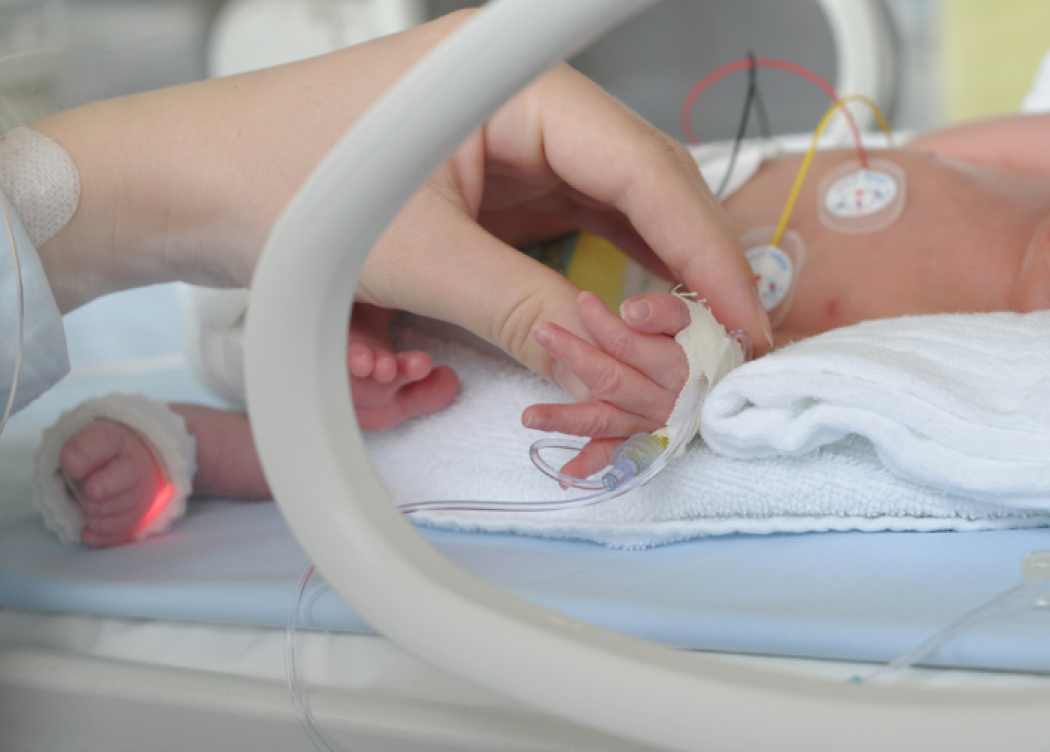With 14 NHS trusts now under investigation as part of the government’s rapid review into maternity services, many families are left asking: what are our rights if something went wrong during birth?
In this blog, we look at what maternity negligence is, what legal rights families have, and how maternity services could be improved to avoid further preventable tragedies.
What is maternity negligence?
Maternity negligence happens when mistakes or poor-quality care are made during pregnancy, labour, or postnatal care, leading to harm for the mother, the baby, or both. It is both a healthcare safety issue and a legal matter, since families may seek compensation if substandard care causes avoidable injury.
This can happen at any stage of maternity care:
During Pregnancy
- Failing to diagnose or manage maternal conditions such as pre-eclampsia or gestational diabetes.
- Misreading scans or blood tests.
- Ignoring warning signs that the baby is not growing properly.
During Labour and Birth
- Poor monitoring of the baby’s heartbeat (missing signs of distress).
- Delayed or unnecessary C-sections.
- Incorrect use of forceps or ventouse.
- Failure to manage complications such as haemorrhage.
After Birth
- Missing or delaying treatment for infections in mother or baby.
- Ignoring jaundice, breathing problems, or feeding difficulties in newborns.
- Failing to identify maternal injuries such as severe tears, leading to distressing incontinence.
The human impact of maternity negligence
Bringing a baby into the world should be a joyful and safe experience. For most families, maternity care goes smoothly. However, when mistakes are made before, during, or after birth, the consequences can be life-changing.
For babies, this could be issues like brain injuries like cerebral palsy, developmental disabilities, or stillbirth.
For mothers, they may experience long-term health issues, infertility, post-traumatic stress or, in rare cases, maternal death.
Then there is the grief and emotional trauma for families who lose a baby due to negligence, or have to face a lifetime of challenges caring for a disabled child.
Behind every statistic is a story of parents who expected safe care and were let down.

What is the government’s rapid review into maternity care?
It’s no secret that maternity care across the NHS has been criticised in recent years for failing babies and mothers, with what seems like one scandal after another.
In response to these systemic problems dating back over 15 years, the health secretary, Wes Streeting, announced the government was launching its rapid national investigation into maternity and neonatal care in June 2025.
Co-produced with clinicians, experts, and parents or bereaved families, the independent investigation is being chaired by Baroness Valerie Amos, a former government minister and senior official of the UN.
It will focus on understanding the experiences of families affected by poor maternity care, identify any lessons learned, and drive the improvements needed.
At the end of the investigation, there will be one set of national recommendations produced to achieve consistently high quality and safe care. An interim report is set to be delivered in December 2025, followed by the final report in spring 2026.
Which NHS trusts are being reviewed and why?
The government has selected 14 NHS trusts that will be investigated as part of the rapid review. These are (in alphabetical order):
- Barking, Havering and Redbridge University Hospitals NHS Trust
- Blackpool Teaching Hospitals NHS Foundation Trust
- Bradford Teaching Hospitals Foundation NHS Trust
- East Kent Hospitals Foundation NHS Trust
- Gloucestershire Hospitals Foundation NHS Trust
- Leeds Teaching Hospitals NHS Trust
- Oxford University Hospital NHS Foundation Trust
- Sandwell and West Birmingham Hospitals NHS Trust
- The Shrewsbury and Telford Hospital NHS Trust
- The Queen Elizabeth Hospital, King’s Lynn NHS Foundation Trust
- University Hospitals of Leicester NHS Trust
- University Hospitals of Morecambe Bay NHS Foundation Trust
- University Hospitals Sussex NHS Foundation Trust
- Yeovil District Hospital NHS Foundation Trust / Somerset NHS Foundation Trust
The trusts chosen aren’t necessarily the worst performing; they have been chosen to represent a variety of trust types, geographic areas, and patient populations.
Data and metrics have been taken from things like the CQC patient survey and MBRRACE-UKmortality rates. Half of the 14 trusts have stillbirth and neonatal death figures at least five percent higher than the national average; Oxford and Sandwell & West Birmingham trusts had the highest stillbirth rates in 2023, and the latterhad a neonatal death rate 50 percent higher than average.
Three of the 14 trusts - Shrewsbury & Telford, East Kent, and Morecambe Bay – have already been subject to prior investigations, so their learnings will feed into this review.
The review will look at how each trust manages patient safety, clinical standards, leadership, responsiveness to risk.
It’s important to stress that most maternity healthcare professionals work tirelessly to provide safe, compassionate care to mothers and babies.
However, systemic pressures, staffing shortages, and miscommunication can sometimes lead to tragic outcomes. Investigations and reports have highlighted repeated concerns, including a culture where families and frontline staff felt ignored.
Families will be at the heart of this investigation, and Baroness Amos wants to particularly hear from marginalised or seldom-heard communities. She will investigate whether women and babies from Black, Asian, minority ethnic, socio-economically deprived backgrounds are experiencing worse outcomes, poorer care or being less listened to.
What should a national plan include?
For too long, piecemeal reforms have failed to address deep-rooted issues in maternity care. A robust, transparent national action plan is not just desirable, it is essential to protect mothers and babies and to rebuild public trust in the NHS.
Some of the things we as medical negligence solicitors believe should be addressed include:
- Safe Staffing Levels
Chronic staff shortages remain one of the biggest contributors to unsafe care. A national workforce plan with enforceable staffing ratios is essential. - Leadership and Accountability
Trust boards should be held directly accountable for maternity outcomes, with transparent reporting systems that cannot be minimised or ignored. - Standardised Care Pathways
Variation between Trusts leaves families at risk. A national framework of minimum safety standards, consistently enforced, is needed. - Listening to Families
Too often, families’ warnings and concerns have been dismissed. A cultural shift is vital so that women, partners, and frontline staff feel empowered to raise concerns without fear. - Training and Continuous Learning
Ongoing training in recognising complications, improving communication, and learning from incidents should be mandatory across all Trusts.

The legal perspective: seeking justice for maternity negligence
Families affected by poor maternity care do have rights. They have the right to answers about what went wrong, the right to hold healthcare professionals accountable, and the right to compensation to help with consequences of that negligence, such as lifelong medical treatment, rehabilitation, adaptations to the home, and loss of earnings.
Families may pursue a claim if:
- A healthcare professional owed them a duty of care.
- That duty was breached (the care fell below standard).
- The breach caused harm to mother or baby.
- The harm resulted in losses — physical, emotional, or financial.
How does a claim work?
If you decide to pursue a medical negligence claim for maternity failings that caused your or your child harm, you should look to appoint a specialist solicitor who is adept at dealing with complex medical negligence claims.
Due to the nature of medical negligence claims, specialist solicitors, like our team here at Medical Solicitors, often have dual knowledge in both legal and medical areas.
In our initial investigations, we will take the time to review your medical records, consult independent medical experts and assess whether care fell below expected standards.
We will then advise whether a claim can be pursued and, if so, offer you a no win, no fee agreement. This means you don’t have any legal fees to pay up front and our costs will only be recovered if your case succeeds.
What can compensation for maternity negligence cover?
Compensation in maternity negligence claims is designed to support the child, mother, and family after avoidable harm has occurred.
It is split into three categories:
- General damages: for pain, suffering, and loss of amenity (impact on quality of life).
- Special damages: for financial losses, both past and future (e.g., lost earnings, care costs).
- Future damages: large settlements (often millions) to provide lifelong security, particularly for children with severe, permanent injuries.
Compensation isn’t a ‘windfall’ - it’s there to cover the extra costs and losses caused by the negligence, often for life. This can make a crucial difference, especially in cases involving lifelong complex conditions like cerebral palsy or brain damage.
Here’s what maternity negligence compensation can pay for:
For the Child
- Lifelong care needs: professional carers, case managers, or support workers if the child has disabilities (e.g., cerebral palsy, brain injury).
- Medical treatment & therapies: physiotherapy, occupational therapy, speech therapy, psychological support.
- Specialist equipment: wheelchairs, hoists, communication aids, adapted beds.
- Home adaptations: ramps, widened doors, wet rooms, lifts, sensory rooms.
- Education support: private tutoring, specialist schooling, or extra help at mainstream schools.
For the Mother
- Medical treatment: ongoing care for injuries such as pelvic damage, incontinence, or chronic pain.
- Psychological support: counselling or therapy for trauma, PTSD, or postnatal depression linked to negligent care.
- Lost earnings: if the mother cannot return to work, or has reduced capacity due to injury.
- Future fertility treatment: if negligence caused infertility or hysterectomy.
For the Family
- Loss of earnings for parents/carers: if one or both parents must give up work to care for the child.
- Travel costs: frequent hospital visits, specialist appointments, or treatment centres.
- Respite care: funding breaks for families from demanding round-the-clock care.
- Funeral costs: in cases of stillbirth or neonatal death caused by negligence.
Is there a time limit on making a maternity negligence claim?
Most claims must begin within three years of when the negligence was discovered. However, we don’t automatically turn away cases that are close to or have exceeded the time limit.
For children, the time limit extends until their 21st birthday. If the child lacks mental capacity, this time limit can extend even further.
Early advice helps preserve evidence, ensures you do not miss time limits, and may unlock access to interim support. Even if you are unsure whether negligence occurred, a free consultation can help clarify your options.
If you believe your maternity care was negligent, our experienced team is here to guide you. Contact us today for a free, confidential consultation.

